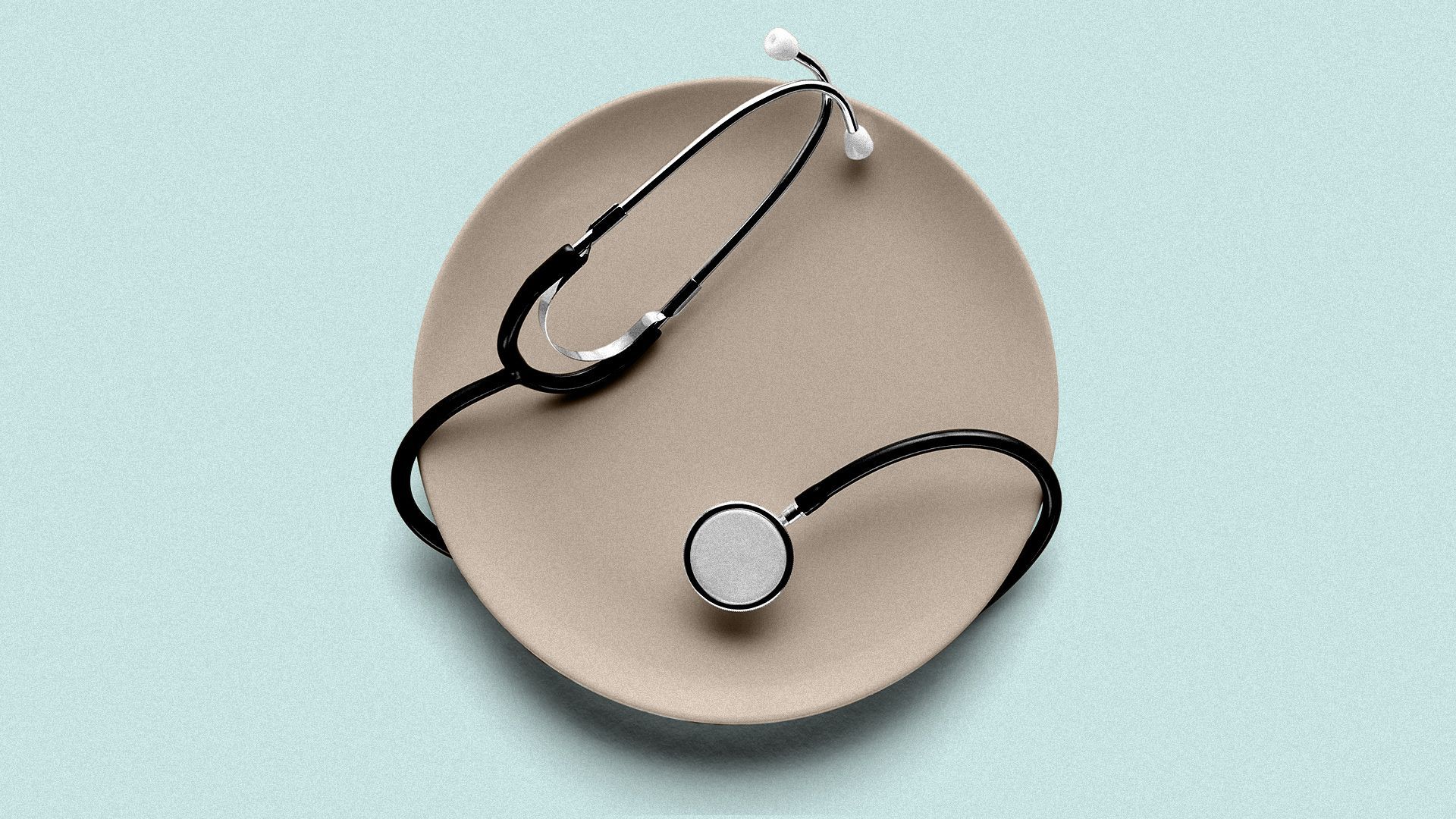Muslim health care workers balance Ramadan fasting with battling coronavirus
Add Axios as your preferred source to
see more of our stories on Google.

Illustration: Aïda Amer/Axios
Many Muslim health care workers in the U.S. have been observing the fasting required during the holy month of Ramadan, despite the demands of treating coronavirus patients.
What they're saying: Aasim I. Padela, an emergency medicine physician at the University of Chicago Medical Center, told Axios some frontline health care workers, like those in New York, were concerned that they might risk dehydration with added PPE.
- "It's an individual decision to break the fast and say 'I’m going to make it up later,'" he said.
The big picture: Muslim health care workers routinely have balanced the stress of everyday life with fasting for Ramadan. This year the highly infectious virus continues to overwhelm emergency rooms and intensive care units.
- More than 10% of pharmacists, clinical laboratory technicians and doctors in New York City are Muslim, according to the Institute for Social Policy and Understanding.
- A 2012 study estimates there are more than 50,000 Muslim physicians in the U.S.
Marium Husain, a fellow in hematology and oncology in Ohio, told Axios that hearing that doctors in New York were fasting this year inspired her to do the same.
- "They are portraying the best of what Muslims are supposed to be. ...They have even more grueling schedules. ... So if I can fast in solidarity with them, that's what motivated me to do the whole month."
- "The pandemic has made it stressful to make sure we don't transmit the virus to our families, that we make sure we can fast safely, but all with the ultimate goal to do our jobs, which is take care of people. That is our main intention, as this is how we serve God, too.
- "Fasting just makes us realize God even more and our responsibility as Muslims and Muslim healthcare providers."
Another important aspect of Ramadan is social. The holiday presents an opportunity each night to meet up with friends and family to celebrate breaking the fast, but the global pandemic this year has forced Muslims to set those anticipated gatherings aside.
- Padela said he was able to have a "much more family spiritual experience" this year because of the coronavirus. With mosques being closed, he has found himself spending more time at home with his wife and children, which has given the family time to pray together.
Go deeper: Coronavirus upends Ramadan celebrations and traditions
